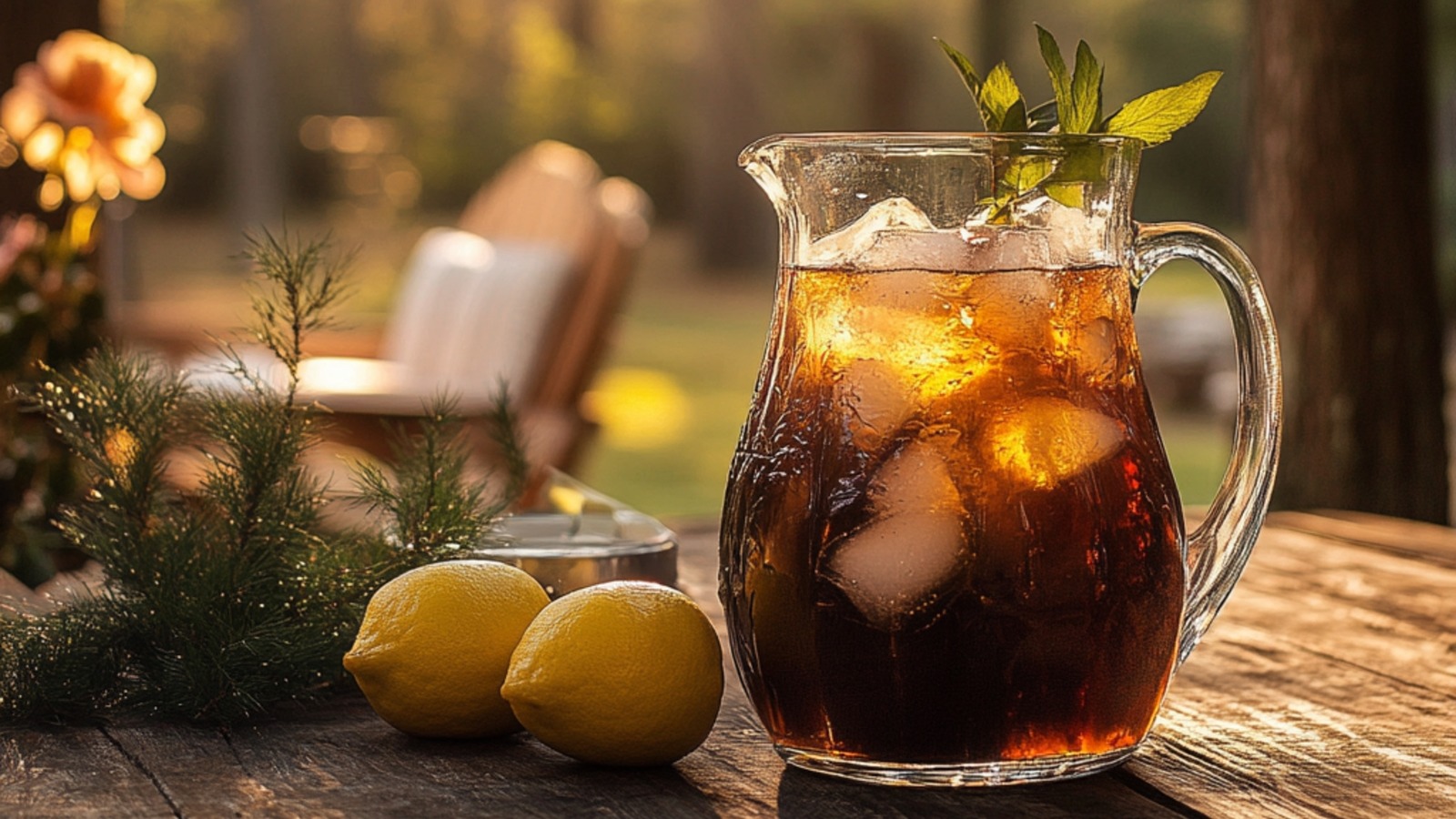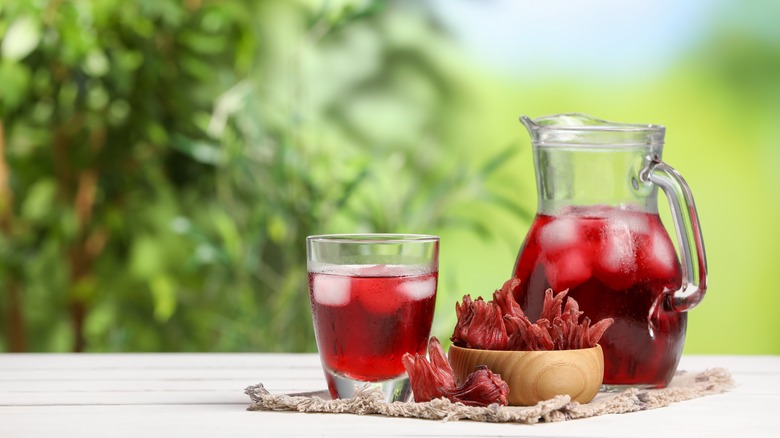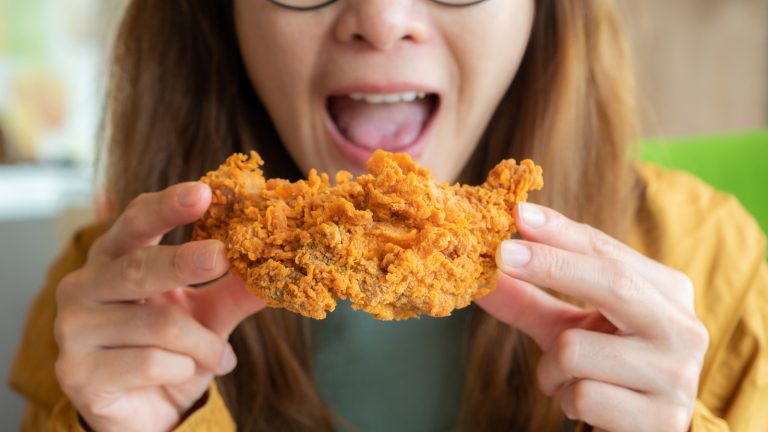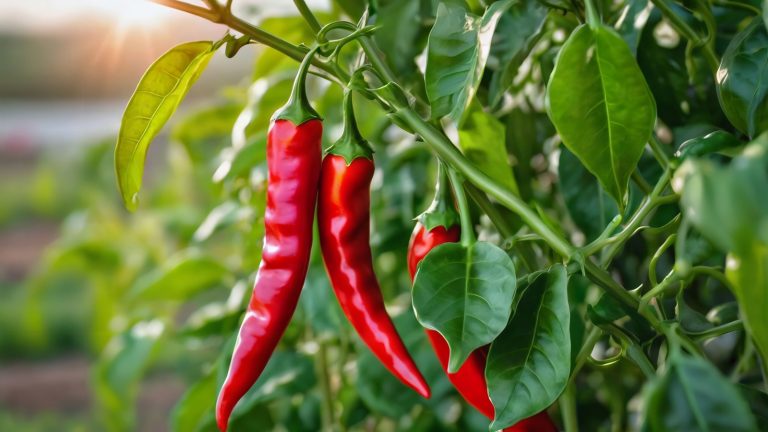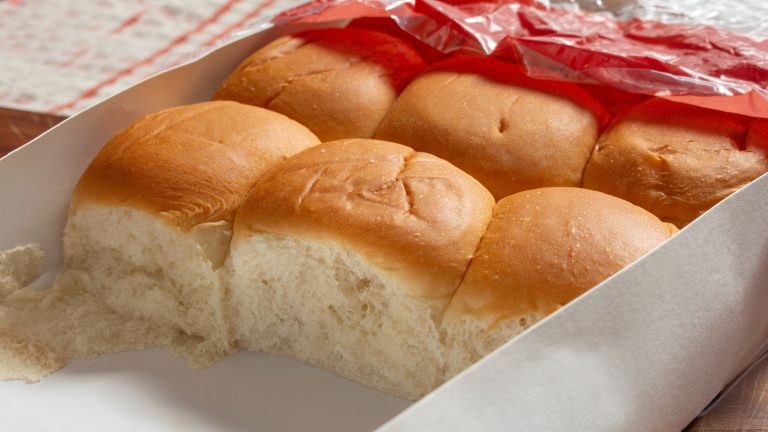We all know how important it is to stay hydrated, especially during hotter months when time in the sun means losing water due to sweat. While you may be tempted to pour yourself a refreshing glass of iced tea, it might not be hydrating you like you think it is. Food Republic spoke to Adam Gilbert, certified nutrition coach and founder and chief Body Tutor at MyBodyTutor, to learn more.
Iced tea does largely contain water, but its other ingredients — caffeine and sugar in the tea — actually work against hydration, according to Gilbert. He explained, “Caffeine has a mild diuretic effect, meaning it can actually cause your body to lose water through increased urination rather than retaining it for optimal hydration.” A crucial tip for excellent homemade iced tea is using high-quality black and green teas, but those can have between 40 to 70 milligrams of caffeine per cup, but none of the electrolytes you need to help with hydration.
Gilbert noted that the sugar content of iced tea also works against you. He said, “Most commercial iced teas are loaded with added sugars, which can lead to blood sugar spikes followed by crashes that leave you feeling more thirsty than before.” Even if it feels like you’re taking in lots of water, you’re losing more because sugar takes plenty of H2O to process — so think twice before buying that 99-cent AriZona Iced Tea, assuming it will rehydrate you. “It’s like trying to fill a bucket with a hole in the bottom,” Gilbert clarified. “You’re adding fluid, but the caffeine and sugar are working against retention.”
Hydrating with iced tea
It’s not impossible to properly hydrate while drinking iced tea; you just have to be careful with the ingredients you use. In fact, teas can be some of the best beverages for rehydration. According to Adam Gilbert, “Herbal teas are your best bet for hydration because they’re naturally caffeine-free and can actually support your fluid goals.” Gilbert personally prefers hibiscus tea, and said, “It’s packed with antioxidants, contains trace amounts of electrolytes like potassium and calcium, and has a naturally tart, refreshing flavor that makes it perfect hot or iced.”
Don’t like hibiscus? No problem. Gilbert gave plenty of examples of hydrating herbal teas: “Chamomile, peppermint, and ginger teas are also excellent choices. They provide the comfort and flavor of tea without the dehydrating effects of caffeine.” If you want to boost the flavor profile, Gilbert noted, “You can even enhance them by adding slices of hydrating fruits like cucumber, lemon, or berries to boost both flavor and electrolyte content.” It’s about finding the best balance between ingredients that taste good yet don’t work against hydration, so you can enjoy the iced tea and feel satisfied with each sip.


